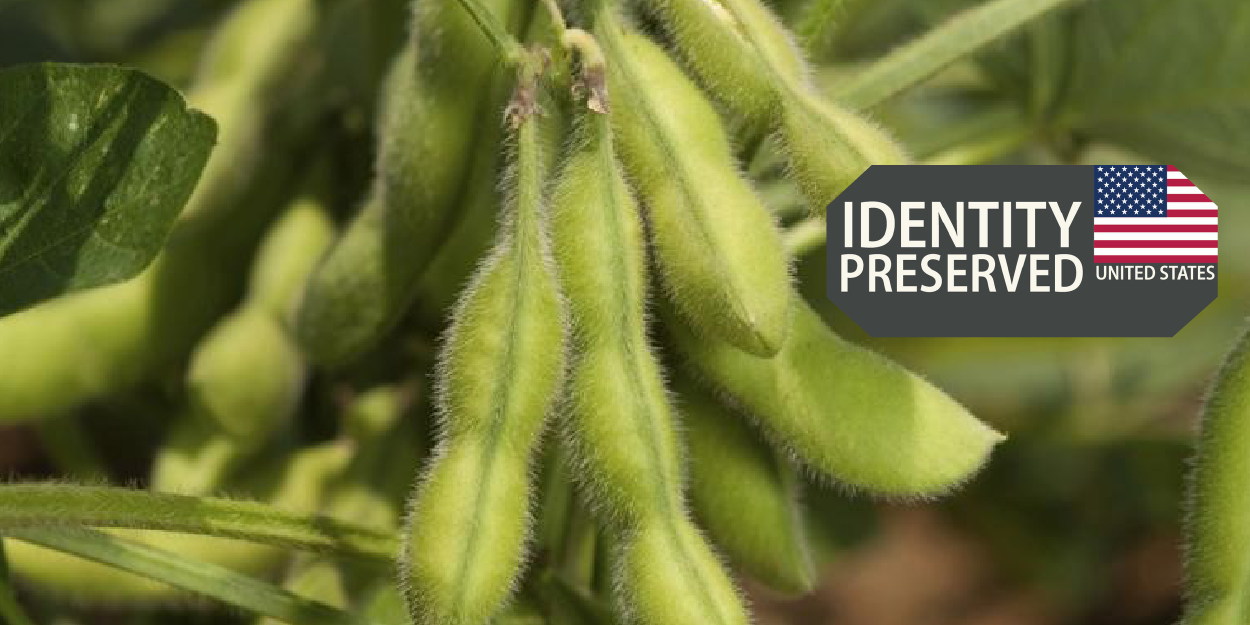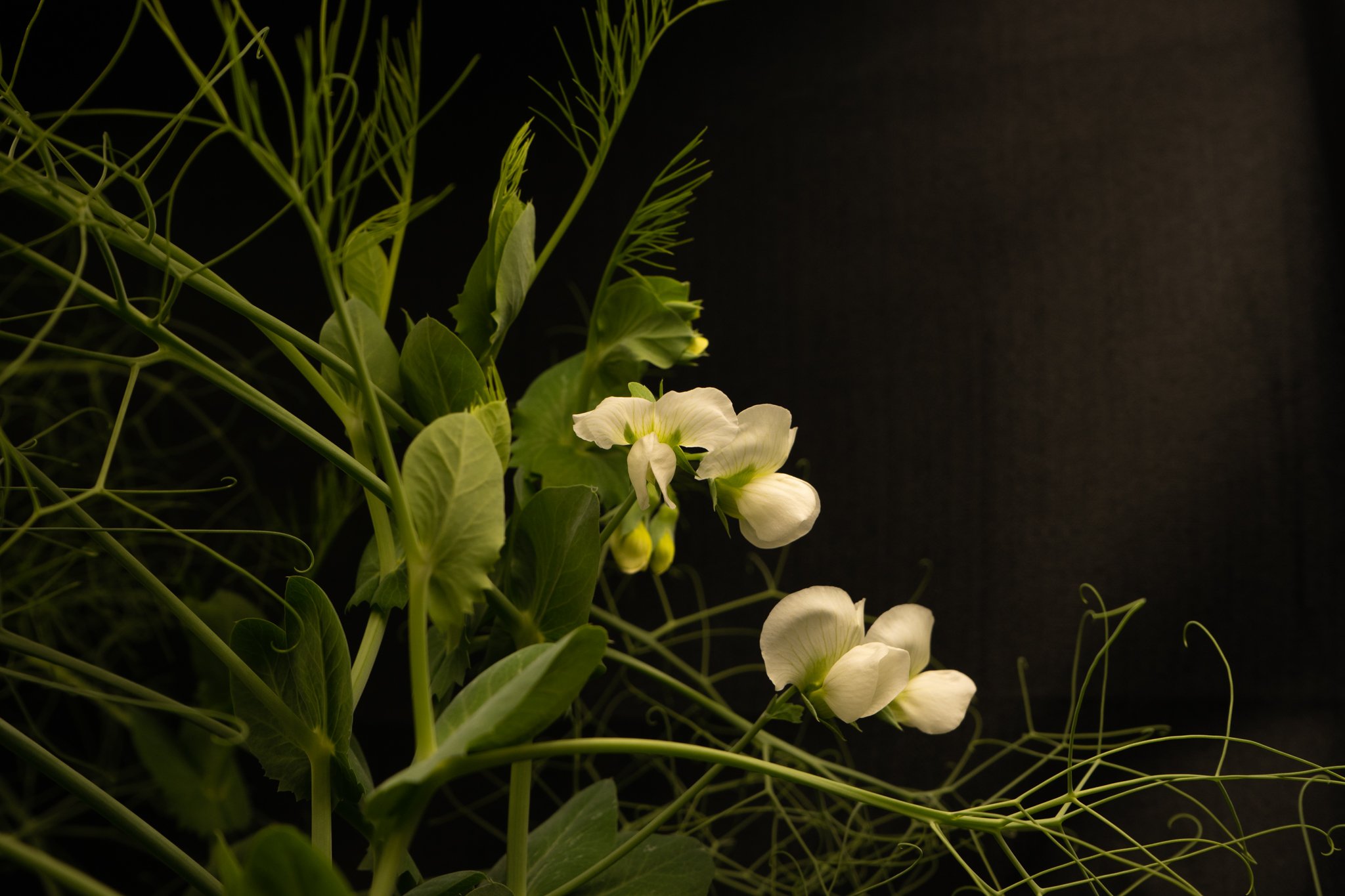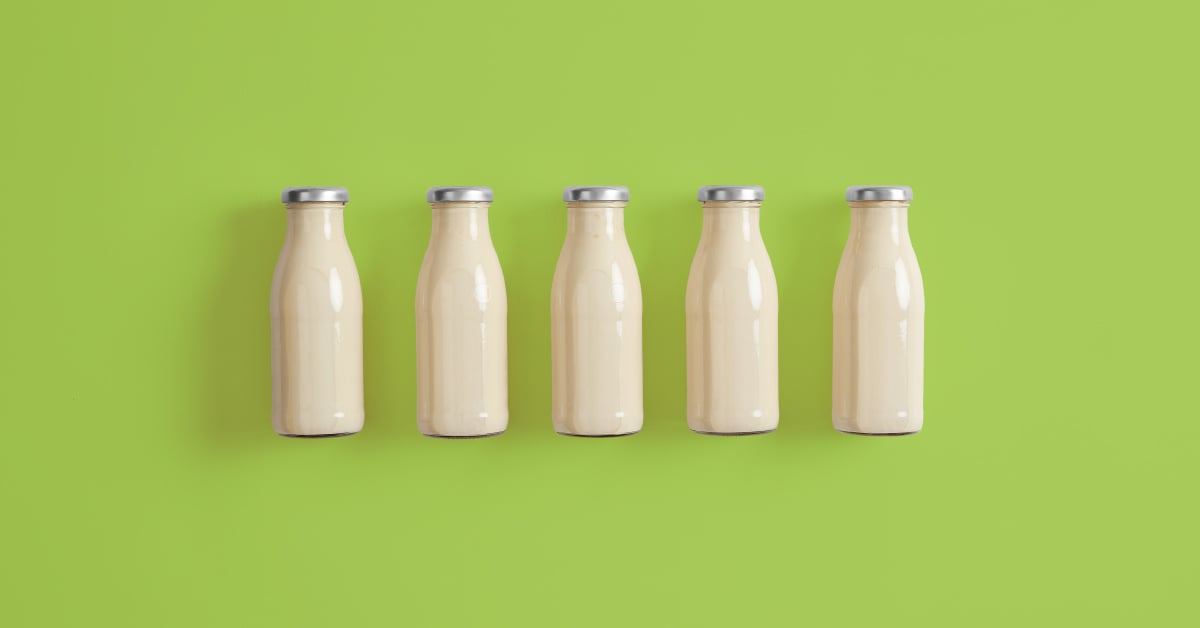Feeding the Planet, Smarter
Consumers are increasingly seeking out food options that are delicious, nutritious, and good for the planet.
Yellow field peas and soybeans are meeting this demand. Grown with regenerative agriculture practices, these crops are at the core of sustainable and environmentally responsible food products.
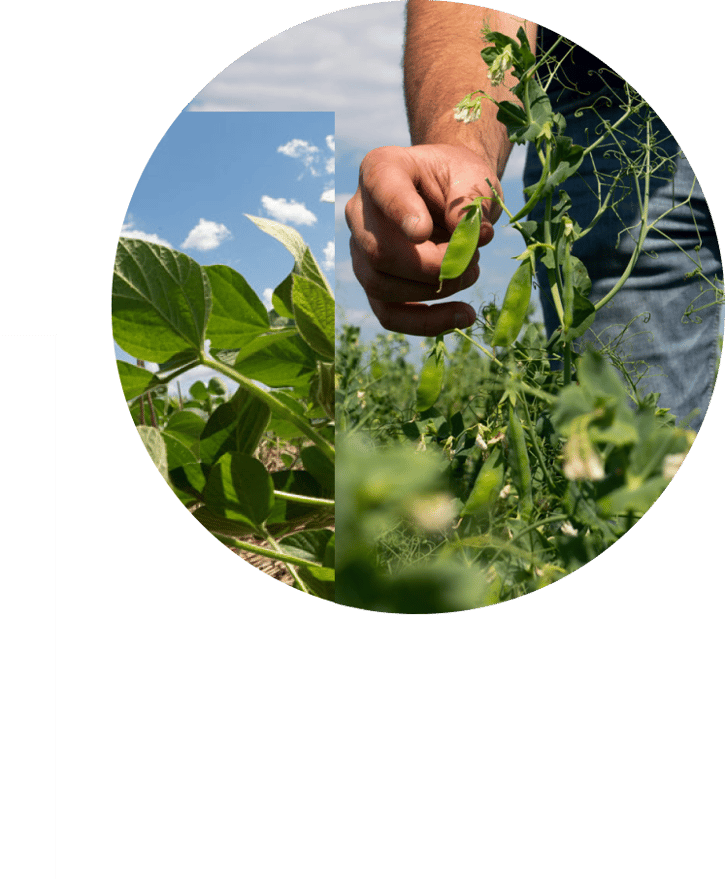
Sustainability Is More Than a Buzzword
We've known for decades that the world's current supply chain won't continue to feed the growing population. So, PURIS was founded 40 years ago to bring knowledge, control, and trust back to our food supply.
We are at every link in the food production chain: from profitable opportunities for growers to flexible ingredients for food makers — all in an effort to introduce sustainable food at scale.
The Food Supply Chain Must Change
These numbers are just a small reflection of the impact our food supply chain is having on our planet.
70%
of global freshwater withdrawals are used for agriculture
24%
Land use accounts for 24% of food emissions
18%
Supply chains account for 18% of food emissions
26%
Food production accounts for over a quarter of global greenhouse gas emissions
PEAS REPLENISH OUR RESOURCES
Peas are a pulse crop that give back to the ground. See how the process of nitrogen fixation makes field peas a sustainability powerhouse.
Video Credit: US Pea and Lentil Council
Lower emissions = a healthier planet
We believe the biggest impact we can have on global emissions is through enabling a shift in diets to more plant-based nutrition. Decreasing consumption of animal proteins reduces land used for feed, water use, and soil degradation, thereby increasing resources for improved food security.
Emissions from our peas are...
 99%
99%
lower than beef3
 98%
98%
lower than dairy3
 96%
96%
lower than pig3
 94%
94%
lower than poultry3
How PURIS
Drives
Sustainable
Products
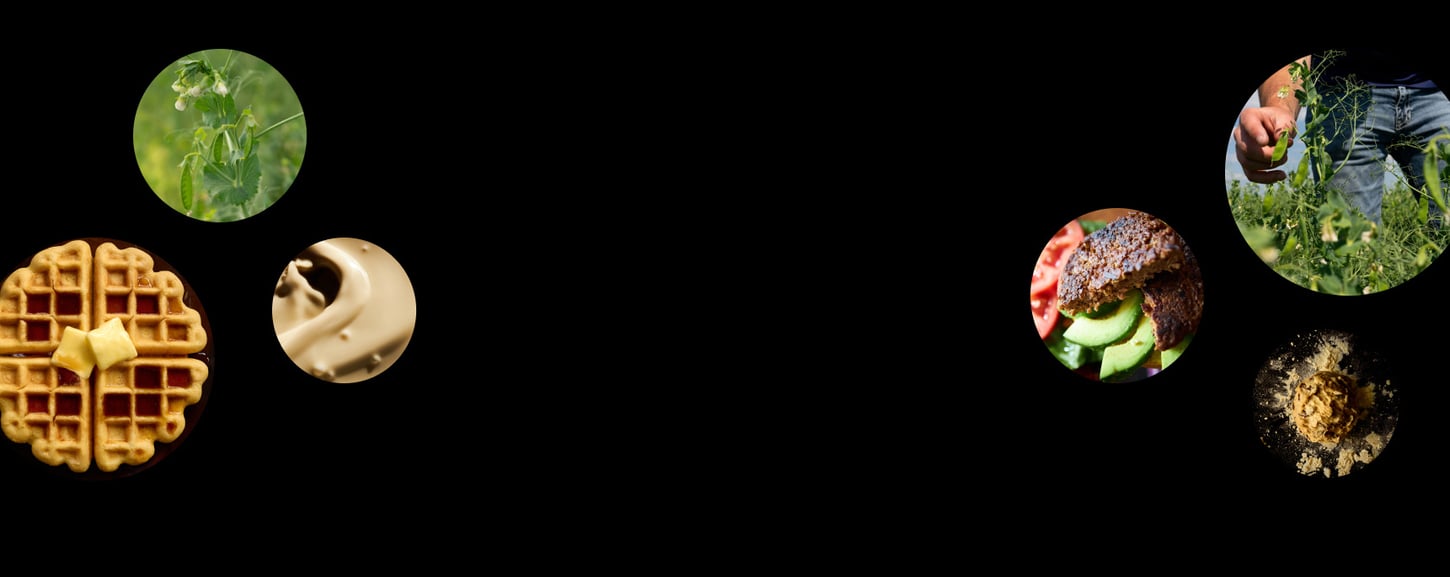
Improved soil health = fewer synthetic fertilizers
Today, the use of synthetic nitrogen fertilizer contributes 10.6% of agricultural and 2.1% of global greenhouse gas emissions. While many crops rely on this fertilizer, it depletes the soil and releases nitrous oxide.
Unlike most plants, peas create their own nitrogen fertilizer, eliminating the need for synthetics and associated greenhouse gases. In fact, U.S. peas have the lowest greenhouse gas potential compared to other protein crops at 0.3 kg CO2e/kg.
And between 1980 and 2020, U.S. soybean farmers have reduced greenhouse gas emissions per bushel by 43%, improved land use efficiency by 48%, and increased production by 130%.
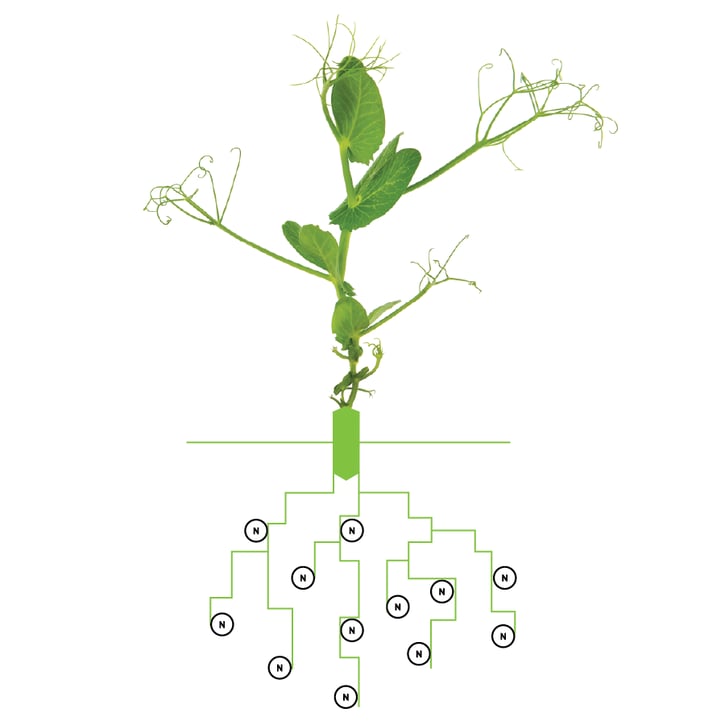
A smaller carbon footprint
Meat and dairy production contribute nearly 15% of all global greenhouse gas emissions — equal to emissions produced by the oil and gas industry.
Pea protein has a lower carbon footprint than popular animal proteins (with beef's carbon footprint ranking 60x higher than peas).
U.S. soybeans also have a significantly lower carbon footprint — responsible for just 0.73 kilograms of CO per kilogram of product, compared to 7.95 kilograms in Argentina and 7.90 kilograms in Brazil.
By 2050, PURIS will mitigate 10X more greenhouse gas emissions than we create in manufacturing.
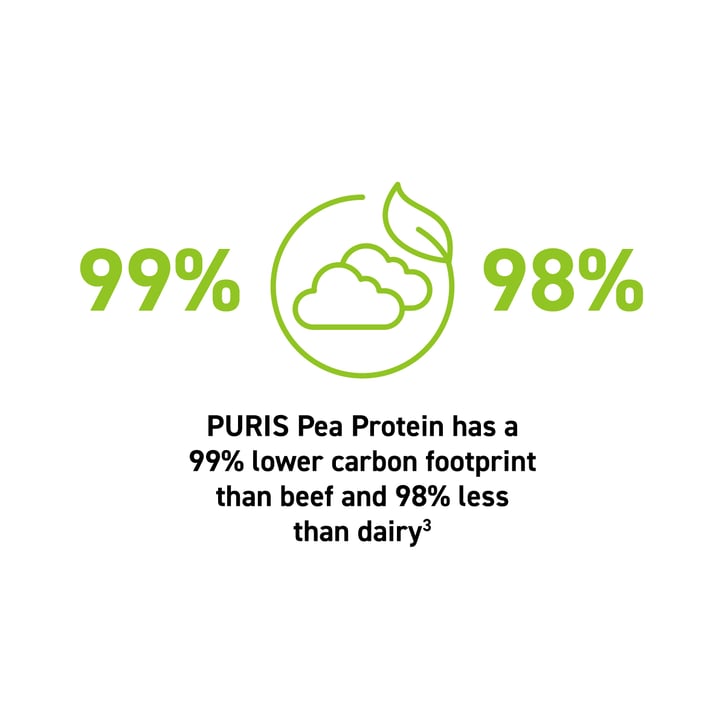
Conserving water one field at a time
Did you know that 70% of global freshwater withdrawals are used for agriculture? Or that every kilogram of rice requires 2,250 liters of water? This can drain reservoirs, harm ecosystems, and put crops at risk during drought.
Peas have a shallow root system and are one of the lowest water consumers, leaving deep water resources untapped and available for the next crop.
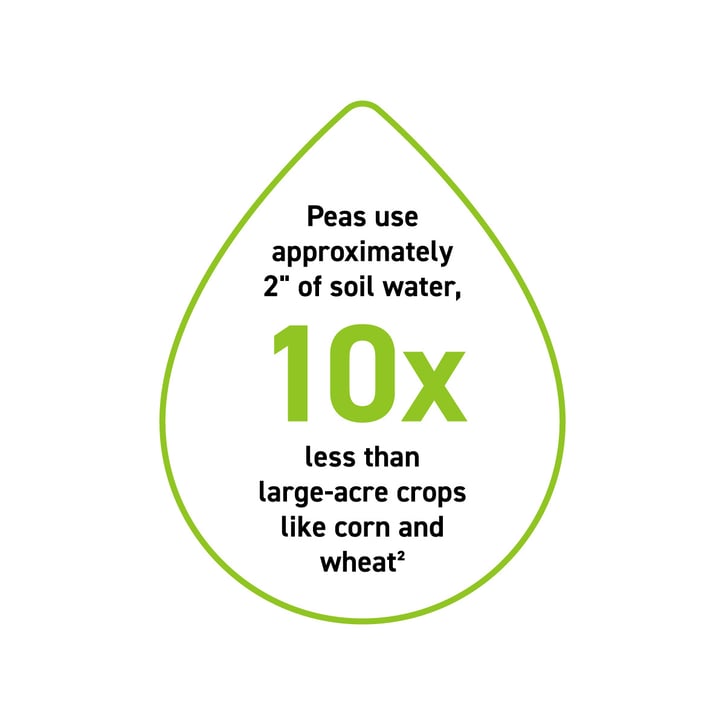
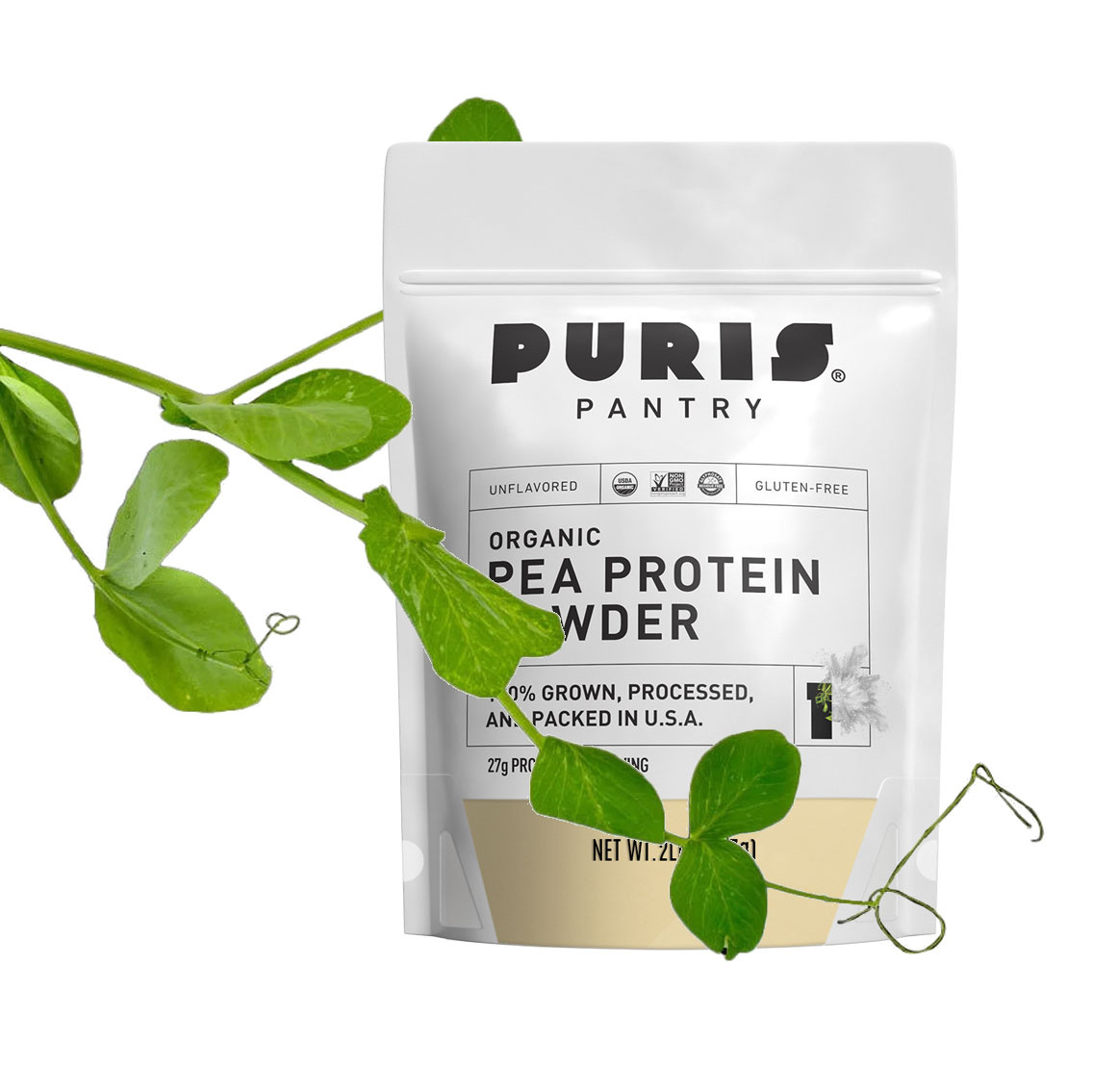
Chasing Sustainable Food & Beverage Manufacturing?
When products taste better and are better for the environment, everybody wins.
Peas are one of the most carbon-friendly protein crops in the world, making them key to a sustainable food future. Check out the environmental impact of pulse production and the untapped opportunities that exist in sustainability messaging when you utilize pea-based ingredients.
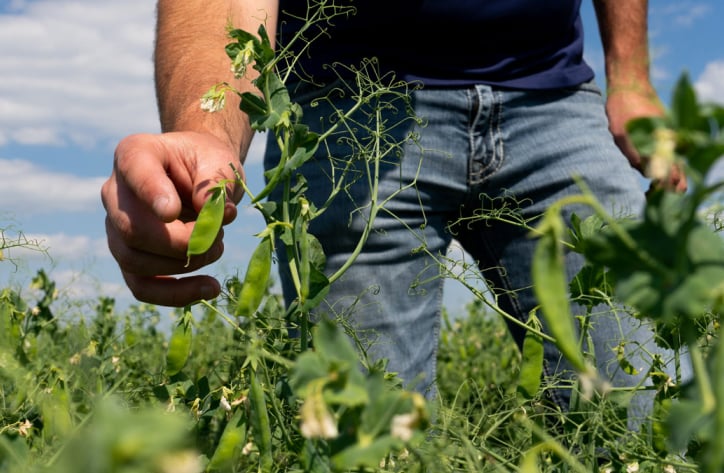
Why Work With PURIS?
PURIS was founded 40 years ago to bring knowledge, control, and trust back to our food supply. Simply put, we want to have a positive impact on nourishing the natural environment.
By partnering with us for food and beverage creation, you are joining our commitment to respect and preserve the natural environment, comply with environmental laws, and improve soil health and our earth — all while making the most delicious products possible.
Curious How PURIS Can Boost Your Sustainability Claims?
How is pea protein more sustainable than animal-based proteins?
Incorporating PURIS pea protein into your products can significantly reduce your carbon footprint. According to lifecycle assessments, substituting animal proteins with PURIS pea protein can reduce associated carbon emissions by up to 85%.
This reduction comes from eliminating methane emissions from livestock, requiring less land (which prevents deforestation), using fewer resources in cultivation, and creating more efficient conversion of crops to final protein. We provide detailed carbon footprint documentation to help quantify these benefits for your specific applications.
What sustainable farming methods are used to grow PURIS peas?
PURIS peas are a tool in a regenerative agriculture model. PURIS' growing journey begins with our proprietary non-GMO seed varieties and a network of farmers who use a variety of regenerative agriculture practices to improve soil health management practices that build organic matter, improve water infiltration, and enhance biodiversity.
What water conservation methods are employed in growing PURIS peas?
Water conservation begins with our seed breeding program, which has developed drought-tolerant pea varieties that thrive with minimal irrigation. Many PURIS peas are grown in regions where rainfall is sufficient without supplemental irrigation.
For farms that do require irrigation, we promote efficient technologies like drip systems and soil moisture monitoring. Our focus on soil health also improves water infiltration and retention, reducing runoff and erosion while making crops more resilient to both drought and flooding conditions.
How does PURIS minimize waste in the pea protein extraction process?
PURIS operates on a zero-waste manufacturing model where every component of the pea is utilized. Our proprietary water-based extraction process separates peas into functional protein, starch, and fiber ingredients, each with valuable food applications.
Processing water is recaptured, treated, and reused in a closed-loop system or released into the environment cleaner than captured. Organic byproducts become natural fertilizers or sustainable feedstocks.
Even the minimal solid waste from our facilities is composted or recycled, diverting over 99% of potential waste from landfills.
How does PURIS ensure traceability throughout its supply chain?
PURIS maintains complete traceability from seed to final ingredient through our vertically integrated supply chain. We begin with our proprietary seeds, contract directly with farmers, and process in our own facilities.
Each batch is tracked with lot codes that follow the ingredients through every stage of production. Our digital tracking system captures key data points throughout the journey, allowing us to trace any product back to specific fields and growing conditions.
What certifications does PURIS hold for sustainable soy?
PURIS participates in the USSEC Sustainable Soy Assurance Protocol (SSAP) and offers SSAP-certified soy. This certification ensures that PURIS soybeans meet stringent sustainability standards, further reinforcing the commitment to environmentally responsible farming practices.
PURIS also offers Identity Preserved soybeans certified by the Specialty Soya and Grains Alliance (SSGA). This certification guarantees the integrity of PURIS soy products throughout the entire supply chain, ensuring segregation, traceability, and quality assurance.
SUSTAINABLE CROPS, SUSTAINABLE BUSINESS
There are not enough resources available to continue feeding the planet the way we currently do. Let's talk about how to make your brand more sustainable.
Sources:
1 Journal of Environmental Management. Cradle-to-grave life cycle assessment of production and consumption of pulses in the United States
2 Colorado State University. Seasonal Water Needs and Opportunities for Limited Irrigation for Colorado Crops
3 Our World in Data. Greenhouse gas emissions per 100 grams of protein
